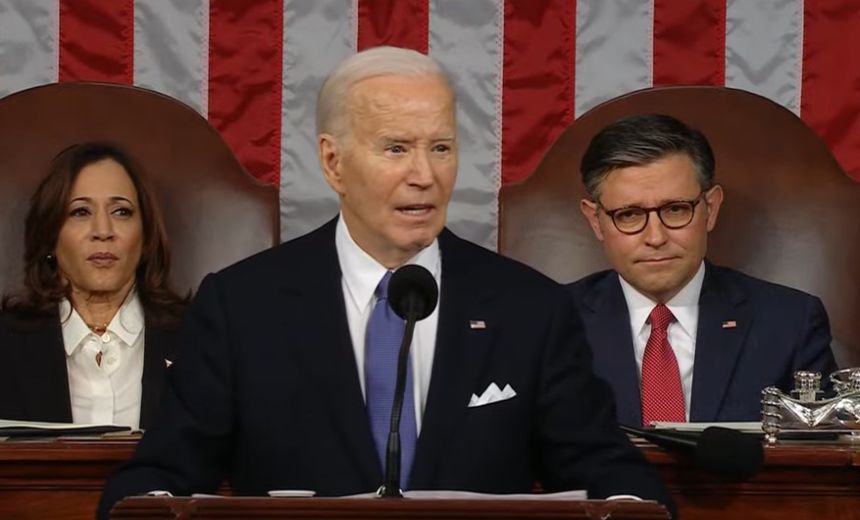In his recent State of the Union address, President Joe Biden highlighted the need for regulating artificial intelligence (AI) technologies, particularly in light of a concerning incident involving an AI-generated voice impersonating him. This call for action signals a growing recognition of the potential risks posed by AI, prompting discussions on legislative measures to address them.
During his speech, President Biden referenced an alarming incident where an AI-generated voice impersonated him, urging individuals to “save their vote” for the general election instead of participating in the New Hampshire Primary. This event underscored the vulnerability of individuals to manipulation and misinformation facilitated by AI technologies.
Bipartisan push for AI regulation
President Biden’s address emphasized the importance of bipartisan efforts to enact privacy legislation safeguarding children online and harnessing AI’s potential while mitigating its risks. His call to action includes measures to ban AI voice impersonations, reflecting a broader concern for protecting individuals from deceptive practices facilitated by AI technologies.
Lawmakers have responded to the need for AI regulation by introducing draft legislation such as the No Fakes Act to address the misuse of AI-generated content. While bipartisan, this proposal has faced criticism, with some arguing for caution in implementing regulations until the technology matures further.
Navigating the legal implications of AI-generated content presents challenges concerning privacy, intellectual property rights, and the right to publicity. The evolving nature of AI technology adds complexity to the legal landscape, with variations in regulations across states necessitating a comprehensive federal approach.
The role of federal legislation
President Biden’s advocacy for AI regulation suggests a broader federal framework to address the growing concerns surrounding AI technologies. By proposing measures to outlaw AI voice impersonation across all states, the administration aims to establish consistent standards and protections against deceptive practices enabled by AI.
Following President Biden’s remarks, there is anticipation for further action from both the executive and legislative branches. The proposal to regulate AI-generated content is expected to gain prominence, prompting discussions among policymakers and stakeholders on the most effective strategies to safeguard against misuse.
The incident of AI-generated voice impersonation targeting President Biden has catalyzed calls for comprehensive regulation of AI technologies. President Biden’s State of the Union address underscored the urgency of addressing the potential risks posed by AI, particularly in the realm of deceptive practices. As discussions on AI regulation continue, policymakers face the challenge of balancing innovation with protecting individuals’ rights and interests in an increasingly AI-driven world.





